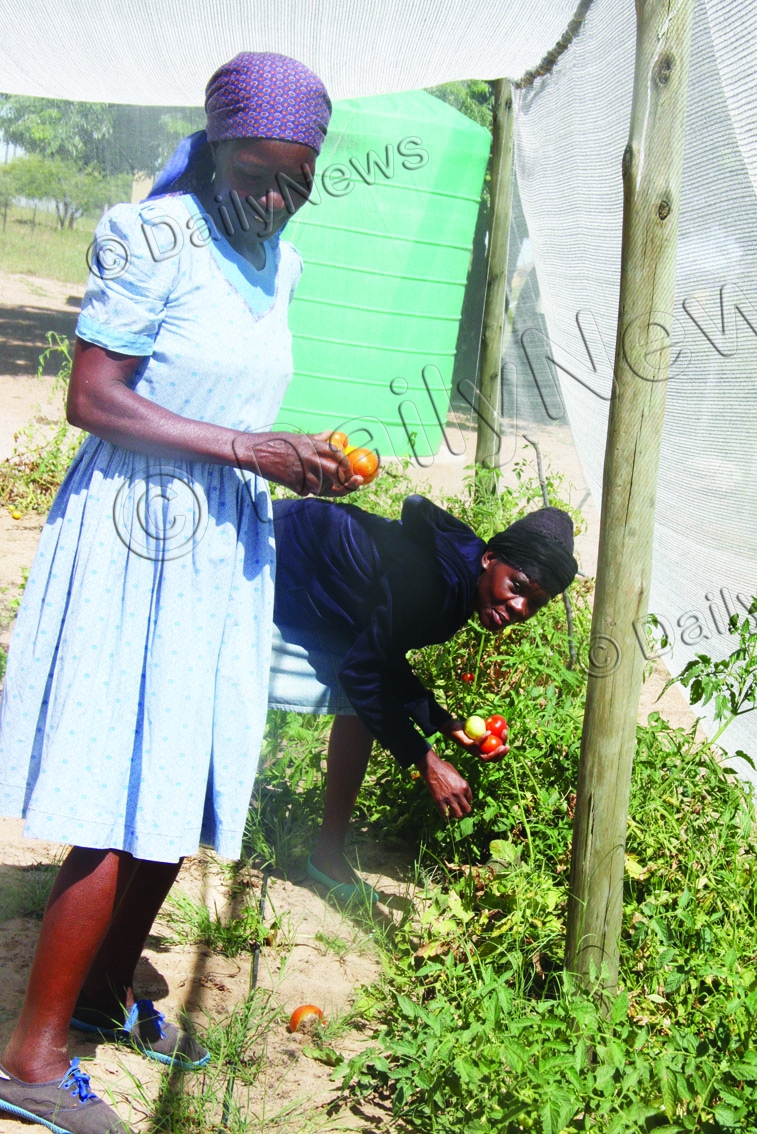Monwane volunteers save lives
06 Oct 2015
From time immemorial, self-reliance has always been an integral part of Botswana society. Communities invariably lent individuals support especially for labour intensive activities such as harvesting.
Consequently, when the concept of community Home Base Care (HBC) movements rolled out, Batswana were more than ready to embrace the idea to assist their fellow human beings.
This was in response to the HIV/AIDS scourge as government health facilities went under siege while medical staff felt overwhelmed. Government would then turn to communities for help.
Thus, the need to give terminally ill patients on palliative care family support became more imperative. this is because HBC provides patients psycho-social and spiritual support besides physical care hence individuals volunteer and form groups that go around homes to lend a helping hand to families caring for the sick.
One of the volunteers, Mapina Ratanti, says since HBC was introduced in Monwane residents are now aware of the importance of enrolling for Anti-retro viral (ARV) therapy.
“Those on treatment no longer hide for fear of discrimination and have now regained confidence and since they are now back on their feet they enjoy government programmes such LIMID and ISPAAD,” says Ratanti.
Initially, says Ratanti, their major challenge as volunteers was dealing with patients who ignored doctor’s orders not to indulge in alcohol consumption while on ARV treatment. The volunteers embarked on an intensive education drive and managed to drive the point home to achieve change.
Another challenge, she notes, was families or relatives abdicating their responsibilities to care for the patients under the wrong notion that it was the duty of volunteers (ba ba bitsa balwetse ba home base care) because they are paid allowances.
Some accused volunteers of using the programme as a form of an income generating venture while they neglected their duties (ba ja madi mahala).
Ratanti says they were treated as employees and not volunteers. However, the situation has changed and “they now know we are here to assist” thanks to the sensitization exercise they embarked upon to change mindsets.
Ratanti is one of the six HBC members and reckons that initiative has helped a lot to get as many patients as possible who were bedridden back on their feet in that they only have less than five patients who still need further care.
Currently, the bulk of work for the volunteers is to monitor patients to make sure they did not default on treatment.
Other group members, Tshwaro Motseko and Keselwaemang Nkoane, say the group also runs a vegetable garden to provide patients, most of whom are from poor backgrounds, with a balanced diet. The group also gets assistance from social welfare officers and that has made their work easier as they receive protective clothing and regular briefs on HBC. Ends
Source : BOPA
Author : Emmanuel Tlale
Location : Monwane
Event : Interview
Date : 06 Oct 2015






